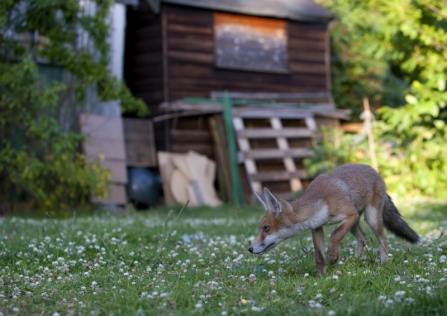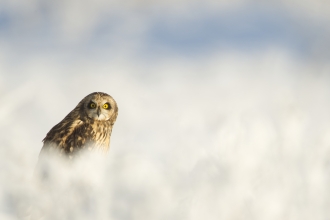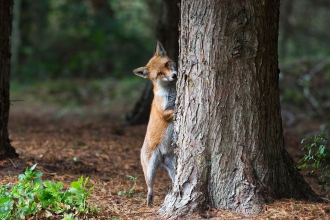From what to feed foxes and badgers, to feeding them in a way that won’t upset your neighbours, here is some useful advice.
How to feed foxes and badgers in your garden responsibly
Gillian Lloyd
What should I feed the foxes in my garden?
Foxes are by no means fussy and have one of the broadest diets of all our wild animals. They catch rabbits, rodents, birds, frogs, earthworms and will eat carrion. They also dine on berries and fruit, while urban foxes hunt pigeons and rats and, of course, enjoy our scraps.
The best way to feed foxes in your garden is to try and replicate their natural diet. Primarily this means meat protein so leave out cooked or raw meat, tinned dog food, or specially-formulated fox food. Your foxes will also be pleased with treats like unsalted peanuts, fruit and cheese.

Bertie Gregory/2020VISION
What should I feed the badgers in my garden?
Like foxes, badgers have a really broad diet. Up to 80 per cent of it is earthworms; they can eat several hundred each night! They also use their hugely powerful front claws to dig for insects and other grubs, as well as bulbs.
Other veggie favourites include apples, pears, plums and elderberries, as well as seeds and acorns. But being omnivorous, badgers are also partial to small mammals like mice, rats and rabbits, plus amphibians like frogs and toads.
Feed your garden badgers things like wet cat or dog food, fruit, raw peanuts or brazil nuts, mealworms, or specially-formulated badger food.

Danny Green/2020VISION
Dos and don’ts
The health and wellbeing of the wildlife you’re feeding should always be your main priority, but also consider how the way you feed foxes and badgers could impact your neighbours. Follow these dos and don’ts to enjoy your local mammals whilst keeping everyone happy.
Do
- Leave out bowls of fresh water.
- Follow a set feeding routine that encourages foxes and badgers to visit your garden at certain times. This means food is less likely to be left standing and encourage rats.
- Only offer just enough food, so the animals still move off to forage naturally and don’t become dependent on you.
- Feed when foxes and badgers are most in need. Winter, for example, or particularly dry spells when things like insects and earthworms are harder to reach in the hard ground.
- Clean bowls and feeding utensils regularly to avoid the spread of disease.
Don’t
- Leave out uneaten food that could attract rats. Providing excessive amounts of food could also cause foxes to become overconfident.
- Put out food that foxes can take away and cache. Offer something they can eat on the spot to discourage them from digging up gardens. Your neighbours might not be as pleased to see these bushy-tailed visitors as you.
- Try to make the animals tame or hand-feed them. Leave out the food then watch from a discreet distance.
- Encourage foxes and badgers to come to your back door or into your house to be fed. They may try this at other homes and get into trouble.
Feeding your garden wildlife is a really easy way to get closer to nature, and when done responsibly, can help your local foxes and badgers to thrive.





